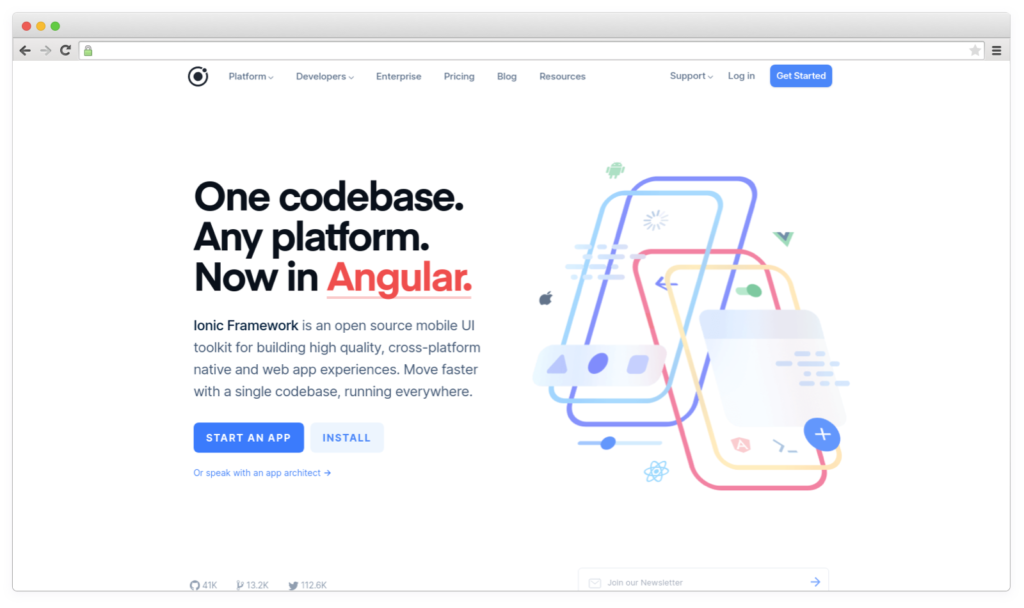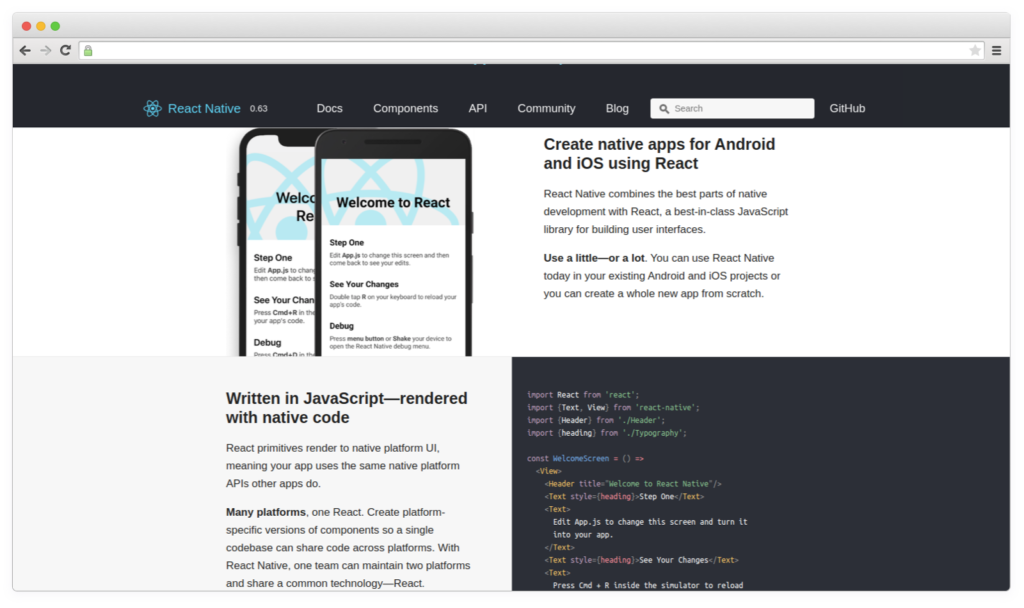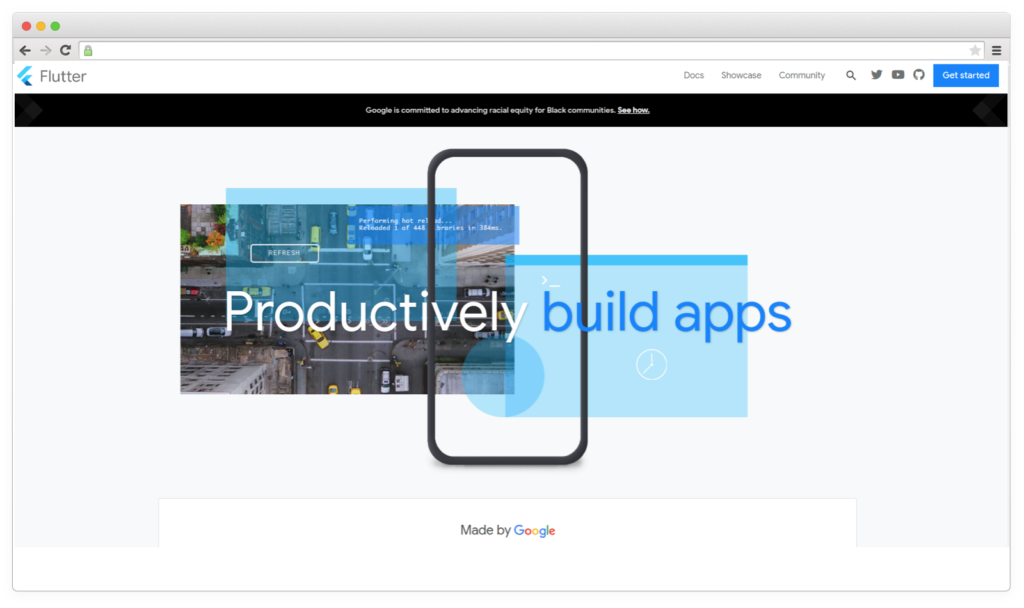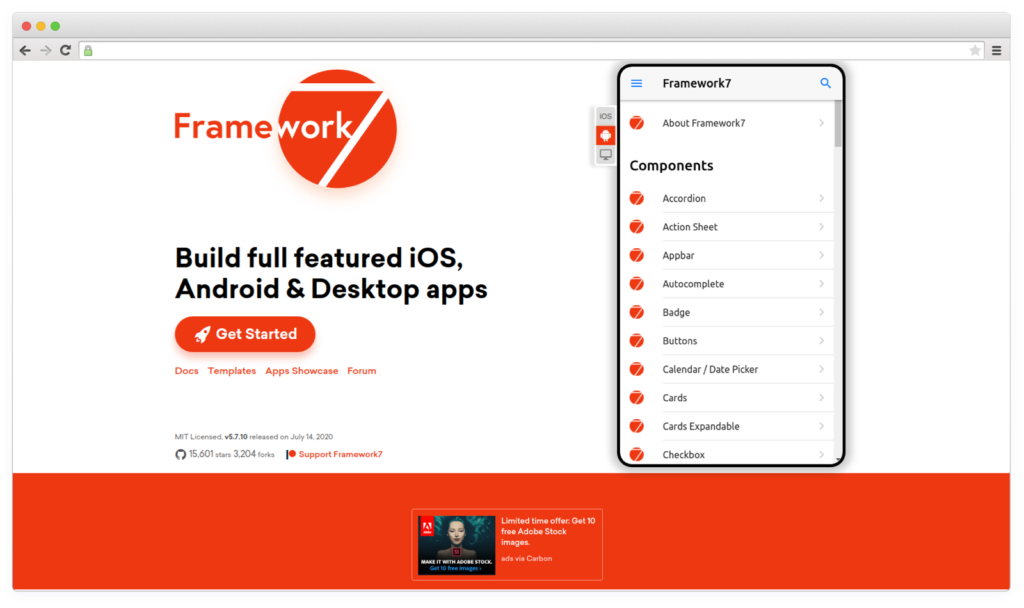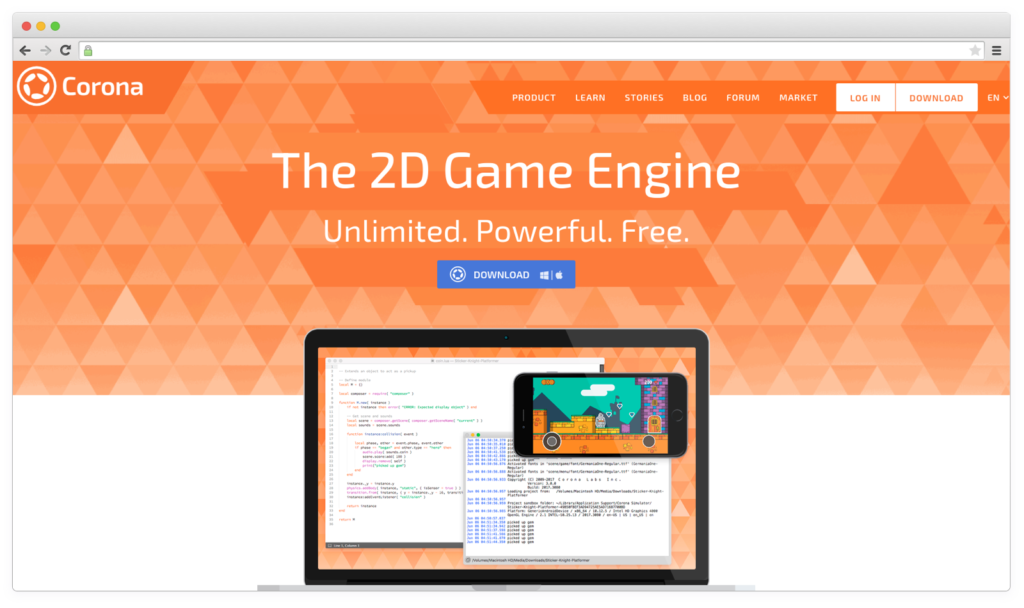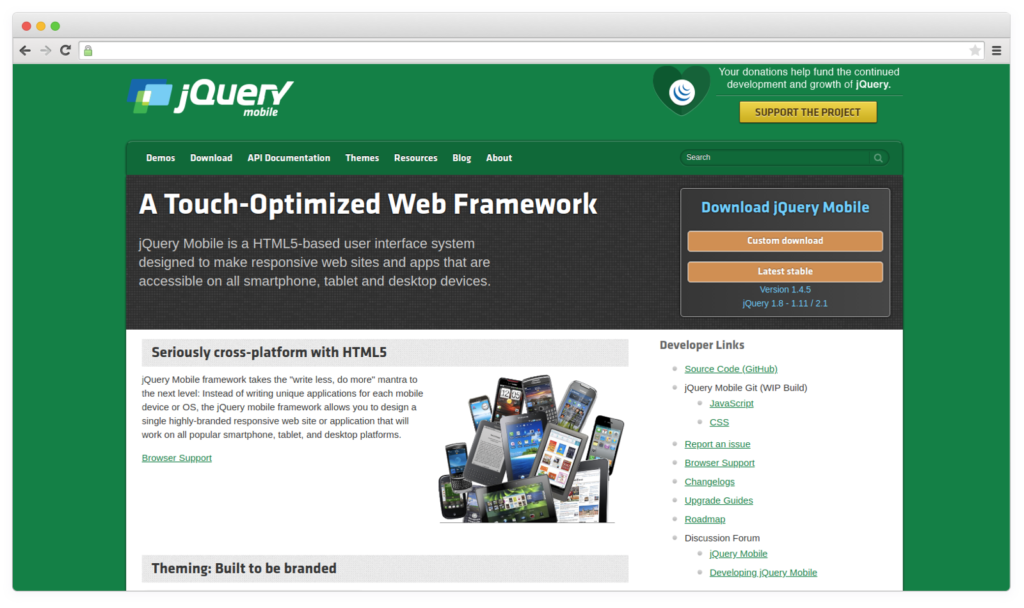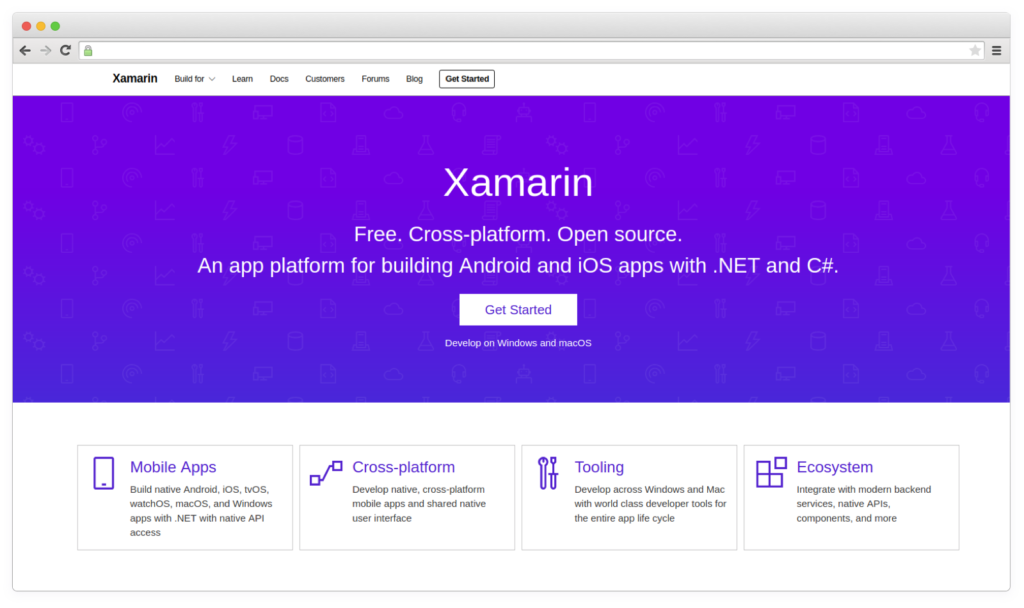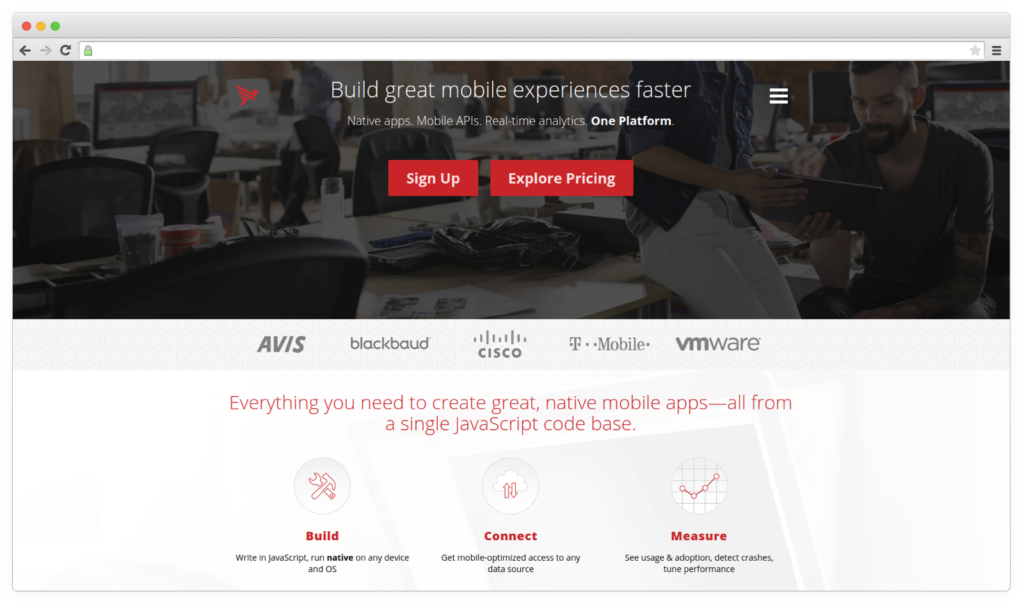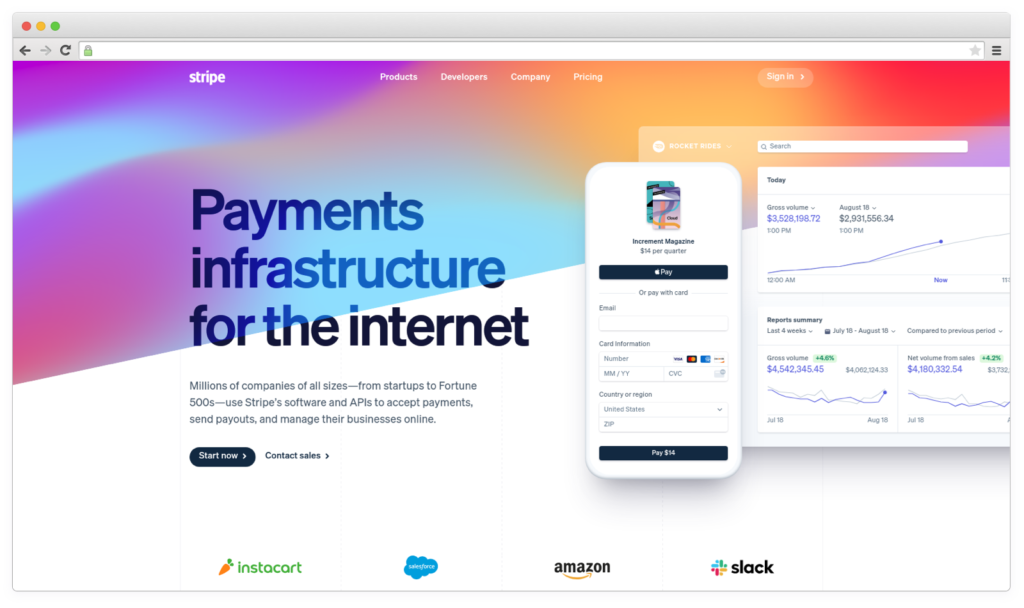Let’s begin with the basics and answer one question: what is Android Framework? It’s a specific set of APIs which come in handy when developers need to develop an Android app. They consist of pre-made solutions allowing developers to build apps much faster, so developers can focus on important things during the development process.
We want to show you the best Android frameworks for app development in 2020.
Ionic
This framework is considered to be the most popular among the competitors with more than 5M of users. It’s designed to build hybrid apps (apps that are using mobile Webview). Within this framework, there is a Components and Theme that provides developers with wide opportunities to build apps with elegant and functional designs. Main advantages of Ionic are:
- Simple Command Line Interface (CLI)
- Cordova plugins that help to get access to various framework components (camera, GPS and so on)
- It’s easy to learn
- Ease of testing
React Native
It’s a beloved framework among Android developers. Many of them say that React Native makes the development of custom apps easy and fast. Due to specific APIs that are closely tied with framework’s nature, developers have straightforward ways to make their projects look native and deliver an outstanding performance. With React Native, these advantages come along as well:
- Simple and intuitive user interface
- Wide support of various plugins
- Giant list of libraries and pre-made solutions
- Modular architecture
Flutter
Flutter is a newbie in the world of frameworks. Nevertheless, this framework has already become very famous. Thanks to its free, open-source nature, it gains popularity really fast.
Furthermore, Flutter lets developers customize UIs of any complexity, so Flutter apps always look unique and pretty. It’s a significant advantage if you want to impress your users with how your app looks.
Speaking of benefits, with Flutter you’ll get:
- Built-in Google’s rendering engine
- “Hot reload” feature which speeds up app development
- Wide range of pre-made widgets
- High performance which can be compared to native apps
Framework7
It’s an absolutely free-to-use open-source framework made for development of hybrid apps. With the help of its built-in libraries, it’s an easy-to-learn framework that will come in handy.
Moreover, you can start creating apps after learning HTML and CSS and have basic JavaScript knowledge. The development process won’t be harder than website development. Framework7 has these advantages at your disposal:
- Wide range of pre-styled UI components
- Has Bower development support
- Can be used with Angular and React frameworks
- Ease of Android and iOS development
Corona SDK
It’s a very flexible framework that allows building apps and games on mobile platforms. The number one feature of this framework is that you can instantly see implemented changes that smooth overall workflow. Besides, this framework has a dedicated community that shares their knowledge on mutual code repositories so you will always have a source of useful information along the development process.
There are more advantages to come:
- Outstanding frame rate (FPS)
- Ease of APIs implementation
- Integrated monetization support
- Lua programming that easy to learn
JQuery Mobile
The main motto of JQuery is “write less — do more.” It’s a user interface framework based on HTML5, and all this is built on JQuery core. With this framework, you will get a simple and neat syntax along with beautiful animations that you can add to your project.
The main advantages of using JQuery Mobile:
- Perfect community support
- Provides with a wide range of plugins
- Ease of bugs identification
Xamarin
This framework has its own friendly development environment with access to native APIs and various Android toolkits. In addition to it, this framework has very useful test solutions: Xamarin Test Cloud and Xmarin Test recorder so developers can test the work of various developed solutions pretty easily.
There are a few more advantages of using it:
- Simple app maintenance
- Excellent performance comparable to native apps
- Open-source
- Xamarin Live Player
Appcelerator Titanium
It’s another open-source framework that allows to build apps using JavaScript and compile them into native Android and iOS apps. Thanks to this framework, it’s enjoyable to use and easy to learn. Within the framework, you can find useful code modules reducing the amount of code that should be written.
There are a few more advantages:
- Framework is absolutely free
- Native UI components provide high performance
- Constant support
- Access to native APIs
Stripe
This framework provides developers with an opportunity to implement various payment systems in their apps pretty easily. The main feature of Stripe is the simplified payment process. Card information sends directly to Stripe servers, where this information converts into a token. After that, this token sends back to the app and finally sends it to Android servers to accept the payment. There are a few more advantages packed in Stripe:
- Transactions security
- Ease of implementation
- Simple merchant sign-up
Why to Use Frameworks?
First of all, the main goal of every framework is to speed up the development process and make its comfort level higher. On the other side, we have customers. Using frameworks will significantly reduce the development cost. Moreover, for every Android app development company, it is vital to optimize various working processes. Frameworks let programmers rest a little and focus their attention on more important things in projects and help to develop various familiar functionality.

